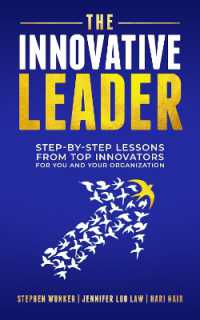Full Description
Corresponding chapter-by-chapter to Maternal Child Nursing Care, 5e, Elsevier Adaptive Quizzing is the fun and engaging way to focus your study time and effectively prepare for class, course exams, and the [NCLEX /certification/licensure] exam. Elsevier Adaptive Quizzing is comprised of a bank of high-quality practice questions that allows you to advance at your own pace - based on your performance - through multiple mastery levels for each chapter.. A comprehensive dashboard allows you to view your progress and stay motivated. Duration for access to this product, which may be at the discretion of your institution, is up to 36 months. Elsevier reserves the right to restrict or remove access due to changes in product portfolio or other market conditions.UNIQUE! Elsevier's trusted, market-leading content serves as the foundation for all questions, which are written, reviewed, and leveled by experienced [nursing/health professions] educators, item writers, and authors.UNIQUE! Unfolding questions become progressively more complex as you advance to higher levels, incorporating concepts such as delegation, multi-system disease, or complicating conditions to help you strengthen your critical thinking and clinical reasoning skills.UNIQUE! Essential test-taking tips and strategies help you learn how to successfully dissect and tackle different question types and improve test-taking skills for both course exams and the [NCLEX/certification/licensure] examination.Confidence level indicators allow you to indicate your confidence when submitting answers, providing valuable insight into areas where you might require further study.UNIQUE! Practice in Study Mode, which provides immediate feedback, or in Exam Mode where the quiz is timed and results are summarized at the end.UNIQUE! In addition to detailed rationales for each question, select questions include interactive, multimedia resources such as illustrations, animations, videos, audio clips, and study tips to help you master challenging material.The engaging, easy-to-use interface ensures that you'll be able to navigate through the program with ease.Multiple mastery levels for each chapter, topic, or concept allow you to progress from one level to the next based on your performance. Alternate item format questions - including multiple-response, fill-in-the-blank, prioritizing, graphic item options, chart/exhibit, video, audio, and hot spot - provide valuable [NCLEX /certification/ licensure] exam preparation.The comprehensive dashboard allows you to view your personal learning progress with summaries of your strengths, weaknesses, mastery levels, and normative data.
Contents
PART 1 Maternity Nursing2. Community Care: The Family and CultureUNIT 2 REPRODUCTIVE YEARS 3. Assessment and Health Promotion 4. Reproductive System Concerns 5. Infertility, Contraception, and AbortionUNIT 3 PREGNANCY 6. Genetics, Conception, and Fetal Development 7. Anatomy and Physiology of Pregnancy 8. Nursing Care of the Family During Pregnancy 9. Maternal and Fetal Nutrition 10. Assessment of High Risk Pregnancy 11. High Risk Perinatal Care: Preexisting Conditions 12. High Risk Perinatal Care: Gestational ConditionsUNIT 4 CHILDBIRTH 13. Labor and Birth Processes 14. Pain Management 15. Fetal Assessment During Labor 16. Nursing Care of the Family During Labor and Birth 17. Labor and Birth ComplicationsUNIT 5 POSTPARTUM PERIOD 18. Maternal Physiologic Changes 19. Nursing Care of the Family during the Postpartum Period 20. Transition to Parenthood 21. Postpartum ComplicationsUNIT 6 NEWBORN 22. Physiologic Adaptations of the Newborn 23. Nursing Care of the Newborn and Family 24. Newborn Nutrition and Feeding 25. The High Risk NewbornPART 2 PEDIATRIC NURSINGUNIT 7 CHILDREN, THEIR FAMILIES, AND THE NURSE 26. 21st Century Pediatric Nursing 27. Family, Social, Cultural, and Religious Influences on Child Health Promotion 28. Developmental and Genetic Influences on Child Health PromotionPhysical Assessment 30. Pain Assessment and ManagementUNIT 9 HEALTH PROMOTION AND SPECIAL HEALTH PROBLEMS 31. The Infant and Family 32. The Toddler and Family 33. The Preschooler and Family 34. The School-Age Child and Family 35. The Adolescent and FamilyUNIT 10 SPECIAL NEEDS, ILLNESS, AND HOSPITALIZATION 36. Chronic Illness, Disability, and End-of-Life Care 37. Cognitive and Sensory Impairment 38. Family-Centered Care of the Child During Illness and Hospitalization 39. Pediatric Variations of Nursing InterventionsGastrointestinal Dysfunction 42. Cardiovascular Dysfunction 43. Hematologic and Immunologic Dysfunction 44. Genitourinary Dysfunction 45. Cerebral Dysfunction 46. Endocrine Dysfunction 47. Integumentary Dysfunction 48. Musculoskeletal or Articular Dysfunction 49. Neuromuscular or Muscular DysfunctionAppendix A: Growth Measurements Appendix B: Common Laboratory Tests Appendix C: Pediatric Vital Signs and Parameters








